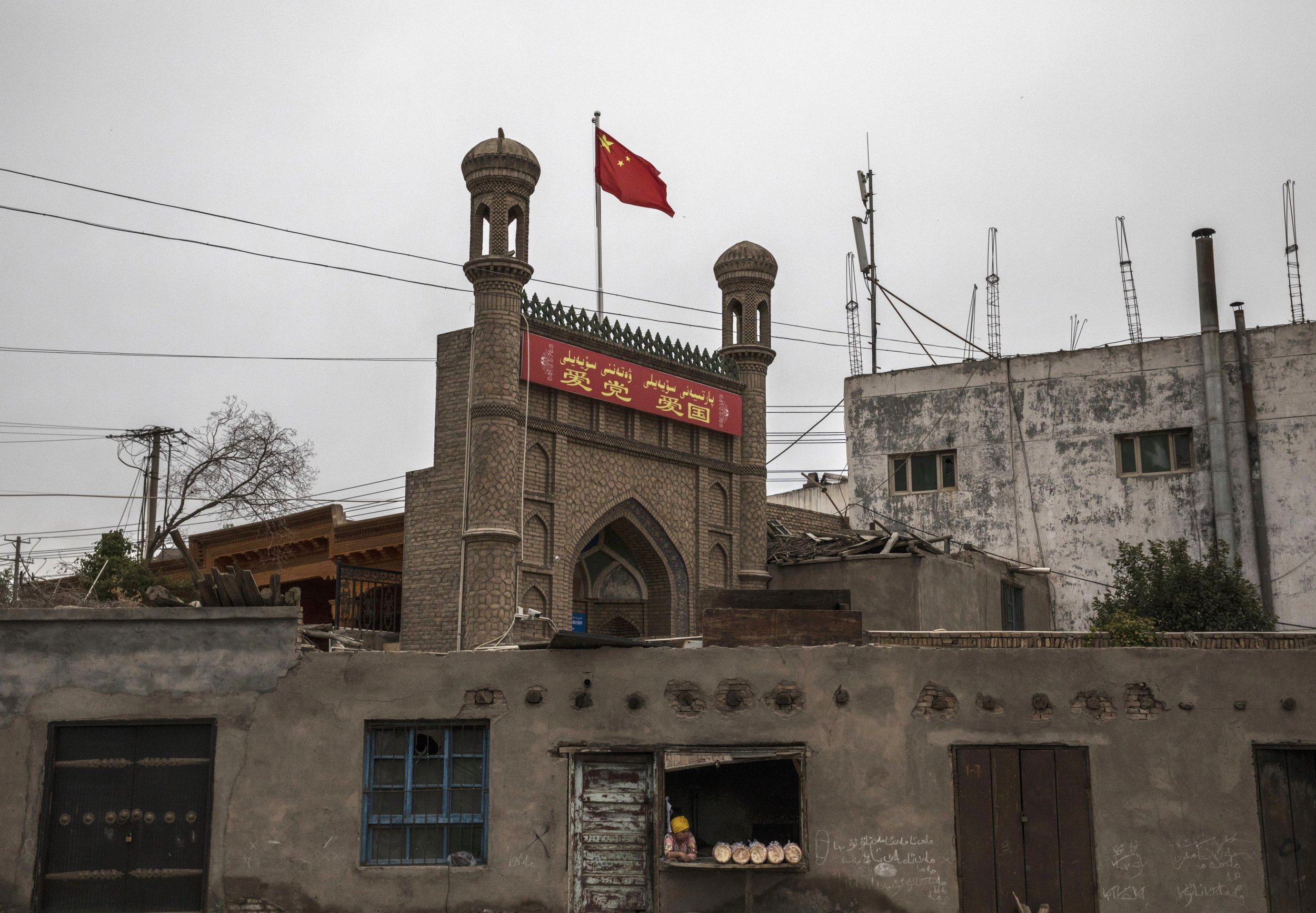
More than two dozen mosques appeared to have been razed in China's Xinjiang province over the past three years.
According to an investigation carried out by the British newspaper The Guardianand the open-source journalism website Bellingcat, a number of Islamic religious sites in the region have been completely or partly destroyed since 2016.
Using satellite imagery to examine 91 different religious sites in the region, an autonomous territory located in northwest China, the research found that 31 mosques and two major shrines had suffered significant structural damage over the past three years.
Almost half of those 33 sites were "completely or almost completely razed," while others had some of their distinguishing features removed. The distinctive structures that were damaged included gatehouses, domes and minarets.
The investigation also found nine buildings that were used as mosques but did not have architectural features typical of such religious sites had also been destroyed.
Each of the sites analyzed was identified by a combination of former residents, researchers and crowdfunded mapping tools.
The Yutian Aitika mosque near Hotan, just north of China's border with Pakistan, was reportedly among those demolished. The mosque dated back to 1,200 and was a popular site for local residents during religious holidays.
The Kargilik mosque, one of the largest in the region, and the Imam Asim complex were also reported destroyed.
The Xinjiang province is home to many ethnic minority groups, including the Turkic Uyghurs. Along with the Uyghurs, other Turkic Muslim groups, such as the Kazakhs and Kyrgyz, have reportedly been persecuted in China.
According to figures from the U.S. State Department, between 800,000 and 2 million people belonging to Muslim minorities are held in what the Chinese government describes as "re-education camps."
While Beijing has indicated the practice is used to combat what it calls terrorism, the camps have been widely criticized, and the findings of the research will in all likelihood increase the pressure.
China has been previously accused of destroying religious buildings as part of a calculated attempt to uproot Muslim culture in the region. "The images of Imam Asim in ruins are quite shocking. For the more devoted pilgrims, they would be heartbreaking," Rian Thum, a historian of Islam at the University of Nottingham, told The Guardian.
"Nothing could say more clearly to the Uighurs that the Chinese state wants to uproot their culture and break their connection to the land than the desecration of their ancestors' graves, the sacred shrines that are the landmarks of Uighur history," Thum said.
Beijing, however, has refuted the claims. China's Foreign Ministry insisted that freedom of religion remains a pillar of the country's society. "China practices freedom of religion and firmly opposes and combats religious extremist thought," ministry spokesman Geng Shuang told The Guardian.
"There are more than 20 million Muslims and more than 35,000 mosques in China. The vast majority of believers can freely engage in religious activities according to the law," Geng said.
Uncommon Knowledge
Newsweek is committed to challenging conventional wisdom and finding connections in the search for common ground.
Newsweek is committed to challenging conventional wisdom and finding connections in the search for common ground.
About the writer
Dan Cancian is currently a reporter for Newsweek based in London, England. Prior to joining Newsweek in January 2018, he ... Read more
To read how Newsweek uses AI as a newsroom tool, Click here.








